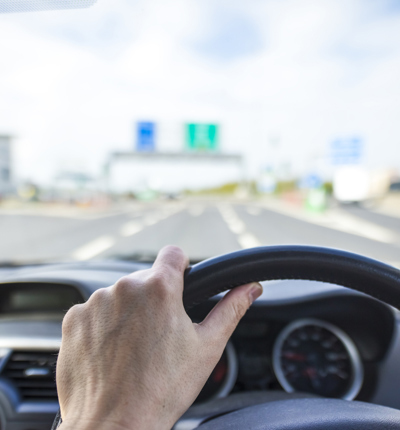
Self-driving cars: Can drivers and other road users be sure that they are safe?
Jill Paterson and Megan George discuss the prospects for driverless cars.
Posted on 12 May 2021
In the not-so-distant past, driverless cars were a common theme in sci-fi films to help transport the viewer to a world far into the future. But now, thanks to huge advances in technology, the UK government plans to allow cars with advanced self-driving technology on British motorways by the end of this year.
With this exciting new step just around the corner, it is important to brake and consider whether this new technology is safe to be used on UK roads.
As with many emerging products, there are uncertainties as to the safety and effectiveness of this state-of-the-art software and a current lack of clarity as to where responsibility lies in the event of a software failure, which could put the driver and other road users at risk.
What is the government proposing?
On 28 April 2021, the government announced its plan to allow vehicles fitted with Automated Lane Keeping Systems (ALKS) technology on UK roads. This technology allows a vehicle to self-drive in a single lane at 60km/h or less without the need for the driver to pay attention to the road.
ALKS can only be used on motorways with a single direction flow of traffic and no pedestrians or cyclists and, for safety reasons, it requires a person to constantly be in the driver’s seat for them to be able to quickly take back control.
The government states that this technology could help improve road safety by reducing human error, as the technology would constantly monitor speed and distance from other vehicles using cameras and sensors.
Why are some concerned about these proposals?
It is important to note that a vehicle with ALKS technology is not the same as a fully self-driving vehicle, sometimes known as an automated vehicle (AV). Whilst AVs can perform all the tasks involved in driving without the need for an individual to monitor its performance, ALKS technology requires that drivers remain in control of the vehicle at all times and can only be used in certain situations.
But motoring groups are calling for more rigorous testing of ALKS systems to ensure that they are safe for use on the roads. Some are concerned that by referring to the ALKS technology as ‘automated’ the government “…is contributing to the confusion and frequent misuse of assisted driving systems that have unfortunately already led to many tragic deaths” and that there could be a real risk to road users if drivers become too reliant on this technology, which could lead them to expect their vehicles to deal with scenarios for which they are not designed.
These concerns stem from cases in the US where ‘autopilot’ technology has allegedly been in use at the time of fatal crashes, without adequate supervision of a driver.
On 17 April 2021 two men were killed in Texas when the Tesla in which they were travelling crashed at high speed after failing to make it round a curve in the road. It was reported that the victims were found in the front passenger seat and in the back of the car, which led police to investigate whether the autopilot function was in use at the time of the crash. This has been refuted by Tesla which claims that data recovered from the vehicle show that the autopilot function was not being used.
Much like vehicles with the new ALKS technology, Tesla cars are designed so that Autopilot can only be used when there is a driver in the vehicle and will check the presence of a driver to ensure that the car has constant human supervision. However, a test, conducted by a consumer magazine in the US, has found that the autopilot function can be deactivated by users, which removes these safeguards. This has sparked concerns for the safety of these vehicles.
The Tesla autopilot function is classified as Level 2 automation by the UN. Vehicles with ALKs technology, designated level 3, are one step closer to full automation.
How will the UK ensure the safety of automated vehicles?
The introduction of ALKS technology onto our roads means we are taking a huge step towards fully automated self-driving vehicles. It is clear that this is the government’s intention, not least because it is estimated that AV technology could create an industry worth around £42 billion in the UK by 2035.
In anticipation of this, the government has proposed the addition of a new section to the Highway Code. This would state that:
- Those using ALKS technology must remain in control of the vehicle.
- Those using AVs must remain in a position where they can take back control if prompted. This would mean remaining in the driver’s seat throughout the journey.
- Those using AVs would not be responsible for how the vehicle drives but must follow the manufacturer’s instructions about when it is appropriate to engage the self-driving function.
- Any driver using ALKS or AVs will remain responsible for ensuring the vehicle is in a roadworthy condition.
The government is accepting responses to these proposals ahead of the anticipated introduction of ALKS vehicles to UK roads at the end of 2021.
Concurrently, The Law Commission of England and Wales is undertaking a detailed review of the legal framework for AVs to ensure that they are safely introduced to our roads and that the self-driving technology remains safe during their lifetime. It also aims to create a new legal framework to reflect the new responsibilities that will arise from self-driving vehicles. The Law Commission has now received responses to their second consultation and will publish their final report and recommendations towards the end of the year.
For now, questions remain about the safety of self-driving technology and the dangers that it might pose to drivers and other road users.



